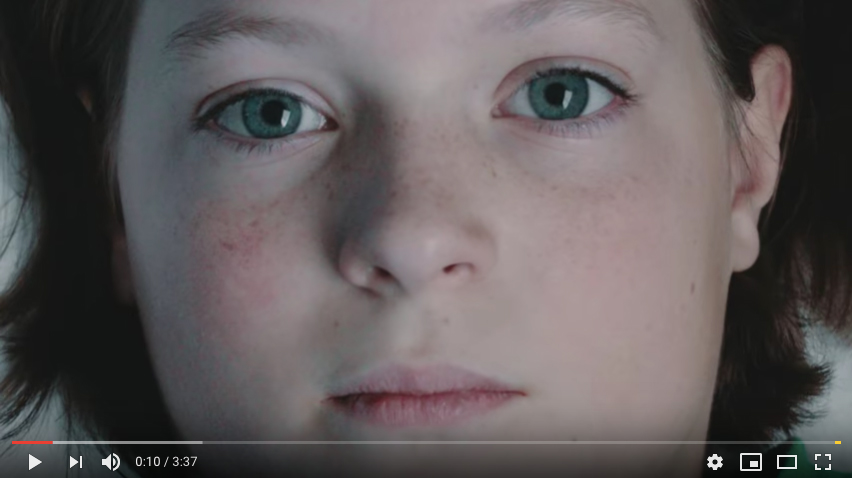Thank you so much for joining me this month! We packed a lot into 30 days — including couplets, tercets, quatrains, haiku, sonnets, ghazal, spoken word, and trochaic dimeter; poems from the 1600s, 1700s, 1800s, 1900s, and 2000s; poems from each of the past five decades; poems by Black poets, Latinx poets, Asian American poets, Arab American poets, Native American Poets, Mixed Race poets, and white poets; poems by people of different religions and economic backgrounds; poems by queer poets, straight poets, non-binary poets, men, women, and one six-year-old — just to name a few!
The recap below includes links to each post, a bio for each poet, and (where applicable) the book each poem can be found in.
The recap below includes links to each post, a bio for each poet, and (where applicable) the book each poem can be found in.
- Poem-a-Day April 1, 2019: Happy National Poetry Month!
“Haiku [for you]” by Sonia Sanchez
from Like the Singing Coming Off the Drums (1998) - Poem-A-Day April 2: Derrida ate my homework.
“The Student” by Carrie Fountain
from American Poetry Review vol. 47, no. 03 (May/June 2018) - Poem-a-Day April 3, 2019: On the last day of the world
“Place” by W.S. Merwin
from The Rain in the Trees (1988) - Poem-a-Day April 4, 2019: On the edge of tomorrow
“Rhapsody” by William Stanley Braithwaite
from Lyrics of Love and Life (1904) - Poem-a-Day April 5, 2019: torn green dress
Ghazal XIV by Zeb-un-Nissa
from The Diwan of Zeb-un-Nissa, 1913 translation by Magan Lal and Jessica Duncan Westbrook - Poem-a-Day April 6, 2019: Yes, Darling, the Patriarchy IS a dinosaur.
“Halloween Shopping With My Niece” by Rachel Wiley
from Nothing Is Okay (2018) - Poem-a-Day April 7, 2019: other girls
“More than one man has reached up my skirt” by Natalie Scenters-Zapico
from Poetry Magazine (December 2018) - Poem-a-Day April 8, 2019: For Keeps.
“For Keeps” by Joy Harjo
from Conflict Resolution for Holy Beings: Poems (2015) - Poem-a-Day April 9, 2019: Emily D.
[952] by Emily Dickinson - Poem-a-Day April 10, 2019: Glorius Outlaws
“Love in the Margins” by Deborah A. Miranda
featured on Literary Hub (April 12, 2018) - Poem-a-Day April 11, 2019: The tiger is out
“The Tiger” by Nael
from You Will Be Able to Say a Thousand Words (826DC Anthology, 2016) - Poem-a-Day April 12, 2019: Don’t Go Into the Library
“Don’t Go Into the Library” by Alberto Ríos (2017) - Poem-a-Day April 13, 2019: Stay Amazed
“When Death Comes” by Mary Oliver
from New and Selected Poems (1992) - Poem-a-Day April 14, 2019: I beat my wings upon the air
“When I Rise Up” by Georgia Douglas Johnson
from Bronze: A Book of Verse (1922) - Poem-a-Day April 15, 2019: Money Money Money
“Money” by Richard Armour
from from William Leahy’s Fundamentals of Poetry (1963) - Poem-a-Day April 16, 2019: Every tongue unfurled
“Fisk Jubilee Proclamation” by Tyehimba Jess
from Olio (2016) - Poem-a-Day April 17, 2019: I am very complicated and so is Beyoncé.
“Beyoncé in Third Person” by Morgan Parker
from Magical Negro (2019) - Poem-a-Day April 18, 2019: slow heat
“Warming Her Pearls” by Carol Ann Duffy
from Selling Manhattan (1987) - Poem-a-Day April 19, 2019: I am pure onion.
“Monologue for an Onion” by Suji Kwock Kim
from Notes from the Divided Country: Poems (2003) - Poem-a-Day April 20, 2019: Saguaro
“To the Saguaro Cactus Tree in the Desert Rain” by James Wright
from Above the River: The Complete Poems (1992) - Poem-a-Day April 21, 2019: My dog wants a bite of my peanut butter
“Theories About the Universe” by Blythe Baird
from If My Body Could Speak (2019) - Poem-a-Day April 22, 2019: a favorite child of the universe
“the earth is a living thing” by Lucille Clifton
from The Book of Light (1993) - Poem-a-Day April 23, 2019: Since it’s his birthday…
“Tomorrow and tomorrow and tomorrow” by William Shakespeare
from Macbeth (1606) - Poem-a-Day April 24, 2019: That yellow line
“Your Life” by Andrea Gibson
from HEY GALAXY (2017) - Poem-a-Day April 25, 2019: snakeskin
“Autobiography of Eve” by Ansel Elkins
from Blue Yodel (2015) - Poem-a-Day April 26, 2019: It is I you have been looking for
“Kindness” by Naomi Shihab Nye
from Words Under the Words: Selected Poems (1995) - Poem-a-Day April 27, 2019: It is evening in the antiworld
“Palindrome” by Lisel Mueller
from Alive Together: New and Selected Poems (1996) - Poem-a-Day April 28, 2019: I love and I love!
“Answer to a Child’s Question” by Samuel Taylor Coleridge
from Sibylline Leaves: A Collection of Poems (1817) - Poem-a-Day April 29, 2019: Heavy
“Heavy” by Hieu Minh Nguyen
from Not Here (2018) - Poem-a-Day April 30, 2019: serving the messy deep into the dead eggplant evening
“So Long, Farewell, Auf Wiedersehen, Goodbye” by sam sax
from Poetry Magazine (December 2018)

